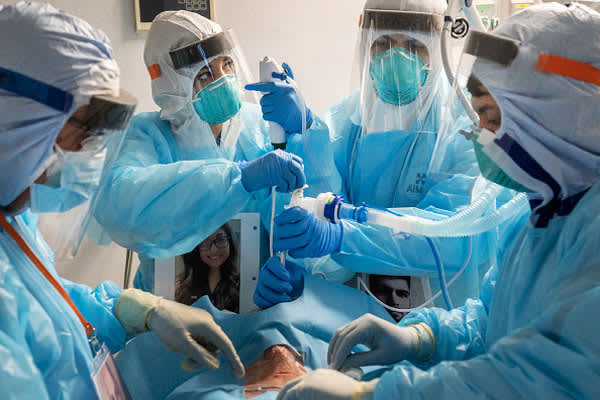Few experts have analyzed and visualized the numbers behind Florida’s fight with the coronavirus as thoroughly as University of South Florida epidemiologist Dr. Jason Salemi.
His website (covid19florida.mystrikingly.com) is rich in accurate data and tools to help amateur or expert alike analyze slices.
So while reaching the inevitable 1 million cases in the state presents an opportunity to reflect on a milestone, Salemi said we should think about the people behind each of those numbers.
“It should just really remind people how many individuals are being affected,” he said.
CORONAVIRUS LATEST
And one of the current trends that troubles him is more people being hospitalized with COVID as the primary diagnosis. He pulls that number each day from the Agency for Healthcare Administration and finds it has increased 106% in that last two months.
“That more than anything else is the thing that is disconcerting, in terms of all the metrics we have access to on a daily basis,” he said.
In Miami-Dade the number of in-patients who have tested positive has increased by 150% in those last two months.
But that metric and the AHCA number are both about 35 to 40% of what hospitals in Florida were coping with during the summer surge, which led to 200 or more Floridians dying each day for weeks in late July and early August.
That comparison, Salemi said, is nothing to celebrate.
“It was actually a scary rise that we were experiencing in cases and hospitalizations in the, quote, summer surge,” he said. “I’d hate to use that as a benchmark because for us to increase at that rate again would be a bit scary.”
And while one million cases presents an easy number to estimate the likelihood of cases leading to deaths or hospitzations, Salemi said not all cases — that is to say, people — are the same.
Yes, more than one in 20 of those infected have been hospitalized, but that tends to skew toward older Floridians.
The risk to the elderly is more pronounced when it comes to deaths.
Overall, nearly one in 50 cases resulted in death, but Salemi notes, “If you’re between 65 and 84 years of age it’s like one in 12 one in 13. If you’re 85 or older, it’s one in four who are actually dying ... If you’re under 50 years of age, the percentage of people with the virus who die is exceedingly small.”



